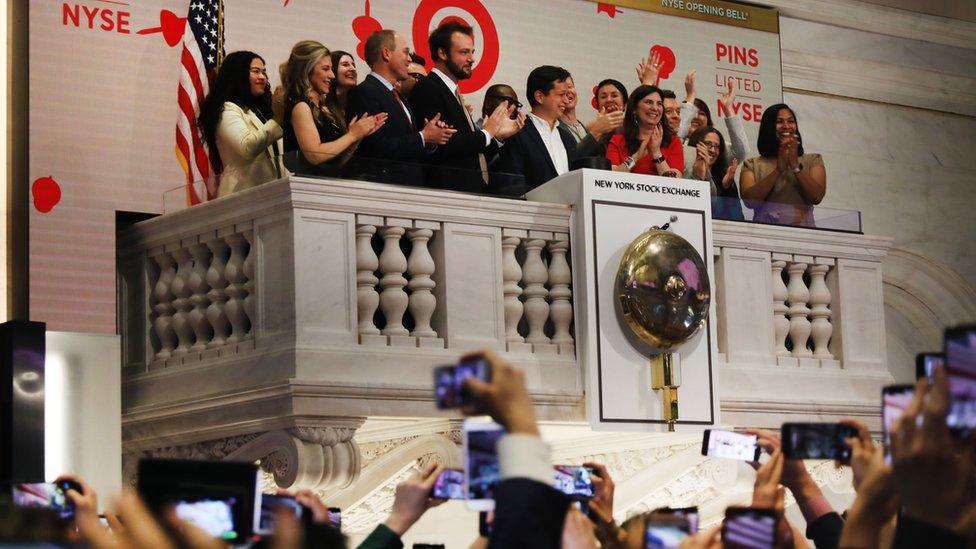Pinterest in $22.5m gender discrimination payout
- Published

Ms Brougher realised her pay was unfair when the firm disclosed executive compensation details for its public listing
Social media firm Pinterest has agreed to pay $22.5m (£16.9m) to settle claims of gender discrimination brought by its former chief operating officer.
The settlement with Francoise Brougher is the largest payout of its kind to be publicly announced.
The photo-sharing company, known for having a heavily female user base, said the action was part of a broader effort to "improve its culture".
The case came amid other criticism from black female former staff.
In the lawsuit, filed in August, Ms Brougher accused Pinterest of excluding her from meetings after she pushed for equal pay.
She said Pinterest ultimately fired her after she pushed for equal pay and raised concerns about sexist comments by a colleague to the company.
The complaint said the move had "solidified Pinterest's unwelcoming environment for women and minorities".
Ms Brougher, 55, worked at Pinterest from March 2018 until her firing in April of 2020. She oversaw a team of roughly 1,000 people.
In a statement, Ms Brougher said that she welcomed "the meaningful steps Pinterest has taken to improve its workplace environment and is encouraged that Pinterest is committed to building a culture that allows all employees to feel included and supported".
The company and Ms Brougher said about $2.5m of the settlement will be donated to organisations that work to advance women and minorities in the tech industry.
'Seismic shift'
"Pinterest recognizes the importance of fostering a workplace environment that is diverse, equitable and inclusive and will continue its actions to improve its culture," the company said in a statement.
After Ms Brougher went public with her claims, some Pinterest staff staged a walkout in response to her accusations, as well as in response to the claims of discrimination by two former Black Pinterest employees. There was also a petition by staff demanding change.
Ms Brougher's lawyer, David Lowe, told reporters that the settlement was significant for its size, donation to charity, and also its public disclosure.
Sharon Vinick, an employment lawyer who is representing women in similar cases, told the New York Times, external the size of the settlement reflected the "seismic shift in attitudes towards gender discrimination".
Related topics
- Published21 February 2017
